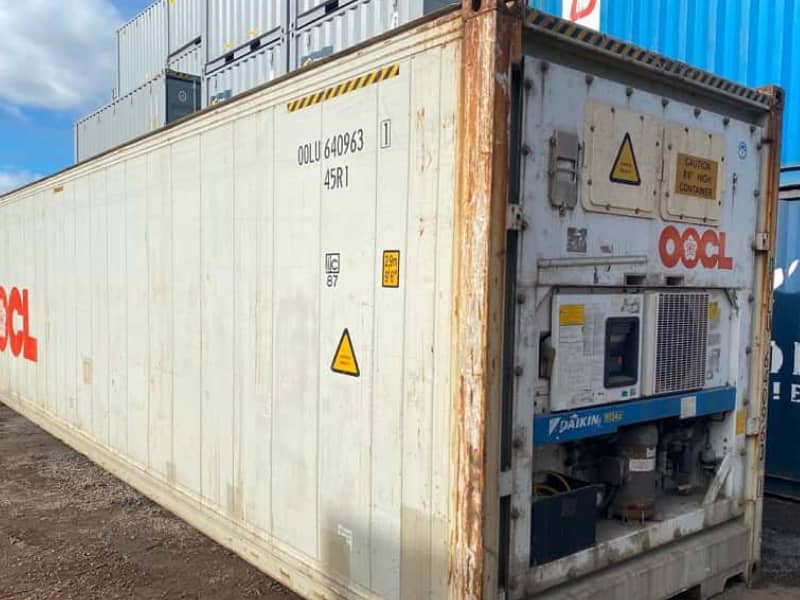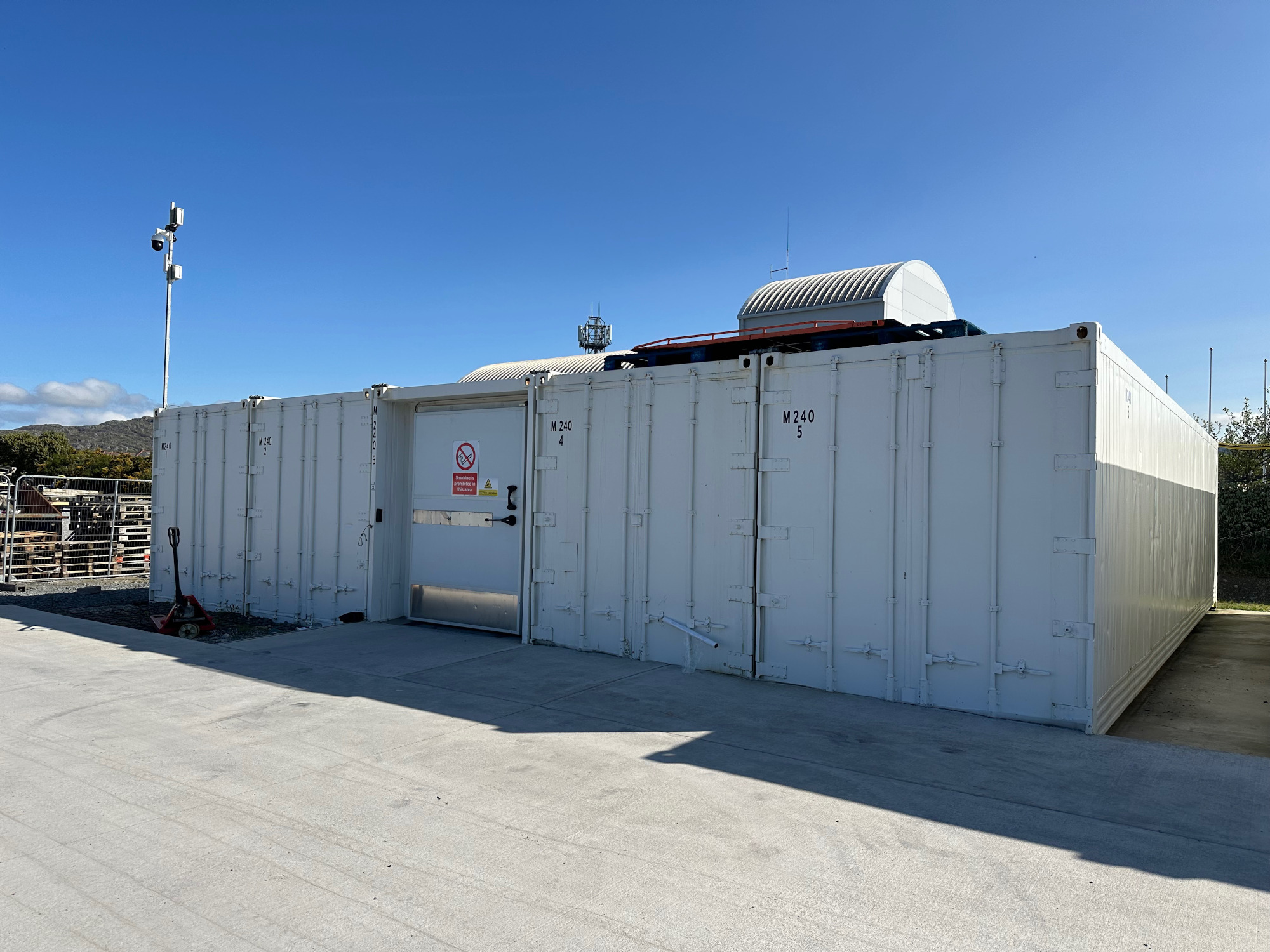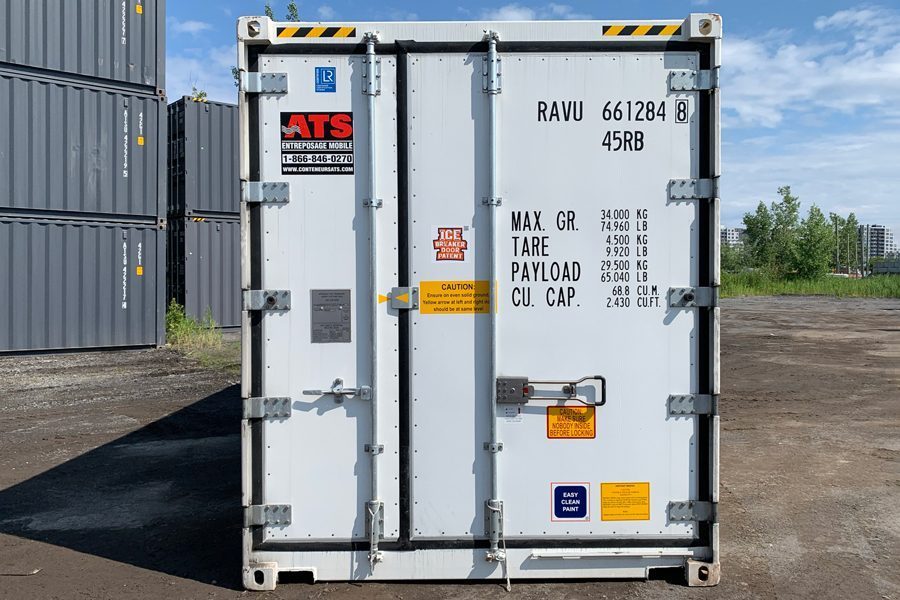All Regarding Freezer Containers: Important Insights for Your Storage Space Requirements
Freezer containers play an essential duty in the conservation of subject to spoiling items. They are available in different kinds, including refrigerated and protected units, each created for certain storage demands. Recognizing the benefits and key functions of these containers is vital for businesses intending to enhance their procedures. As the demand for reliable storage solutions grows, discovering the different alternatives offered can lead to notified choices that impact both profitability and sustainability. What aspects should one consider when choosing the appropriate container?
Sorts Of Cold Store Containers
Cold store containers come in different kinds, each made to fulfill specific temperature control requirements. Amongst one of the most usual kinds are refrigerated containers, which keep temperature levels in between 0 ° C to 10 ° C, making them appropriate for disposable items like fruits, veggies, and milk items. One more type is the deep freezer container, which operates at temperatures listed below -18 ° C, perfect for lasting storage space of icy products such as meats and seafood.
Shielded containers provide temperature security without energetic air conditioning, making them helpful for short-term transport of temperature-sensitive items. Additionally, there are mobile cold store devices, which offer adaptability in locations and are typically utilized in events or seasonal operations. Lastly, blast chillers quickly decrease the temperature of hot foods, guaranteeing safety and high quality. Each kind offers an one-of-a-kind function in various sectors, from food service to pharmaceuticals, emphasizing the relevance of selecting the best container for details storage space demands.

Advantages of Utilizing Freezer Solutions

Additionally, cold storage space options extend the rack life of products, lowering waste and raising earnings for businesses. By efficiently handling inventory with appropriate temperature level control, business can optimize their supply chains and improve operational effectiveness.
Furthermore, cold store facilities permit adaptable storage space choices, accommodating different quantity needs and seasonal fluctuations popular (used 40ft refrigerated shipping containers). This versatility aids companies react quickly to market modifications
Using cool storage options can assure conformity with health and safety policies, securing both companies and consumers. In general, the critical use cool storage enhances product administration while advertising sustainability and economic viability.
Trick Features to Look for in Cold Store Containers
When picking cold store containers, a number of crucial functions advantage mindful factor to consider to safeguard peak efficiency and dependability. Temperature level control abilities are necessary; containers should keep consistent temperatures appropriate for certain products. Insulation quality also plays a significant duty, as superior insulation reduces power usage and enhances temperature security.
Next off, simplicity of access and loading is critical; containers should offer straightforward styles for efficient handling and company. Durability is another crucial aspect; weather-resistant products ensure long life and guard components versus environmental factors.
In addition, flexibility functions, such as built-in wheels or raising points, promote transportation, while customizable formats enable customized storage solutions.
Last but not least, checking systems, including temperature level alarms and remote monitoring, offer real-time updates, ensuring that problems continue to be optimal. By concentrating on these functions, users can choose cold store containers that satisfy their functional demands properly.
Selecting the Right Freezer Container for Your Demands
Selecting the appropriate cold storage container calls for a thoughtful assessment of functional needs and particular demands. Factors such as the sort of products being kept, temperature level of sensitivity, and quantity should be prioritized. Disposable food products might require containers with rigorous temperature level controls, while pharmaceuticals may need accurate conditions to preserve efficiency.
In addition, potential users should consider the container's size and wheelchair. A bigger system may be required for bulk storage space, while smaller sized, mobile choices might be perfect for momentary or on-site requirements. Insulation high quality and energy efficiency are likewise vital, as these will impact functional prices and temperature level security.
Finally, compliance with industry laws and criteria is essential, specifically in markets like food and health care. By thoroughly evaluating these facets, individuals can pick a cool storage space container that efficiently meets their one-of-a-kind demands and assurances optimal storage space conditions.
Ideal Practices for Preserving Freezer Conditions
Preserving perfect cold store problems is crucial for maintaining the quality and safety and security of temperature-sensitive products. Regularly keeping an eye on temperature and humidity degrees is crucial; making use of trusted digital thermostats and hygrometers can offer precise readings. Proper insulation of cool storage containers assists decrease temperature variations and power loss.
Executing a first-in, first-out (FIFO) system assures that older inventory is utilized prior to newer supply, decreasing waste (used 40ft refrigerated shipping containers). Furthermore, keeping an organized format within the storage area permits far better airflow and reduces the danger of cross-contamination
Routine upkeep examine tools, such as compressors and seals, are very important to stop breakdowns. Team training on finest practices for packing and dumping items aids keep temperature stability. Keeping doors closed as much as possible limits heat exchange, guaranteeing that the chilly storage environment remains secure and reliable in protecting useful products.
Cost Considerations for Freezer Solutions
When web evaluating cold store solutions, it is important to take into consideration the preliminary investment costs alongside ongoing operational expenditures. A comprehensive breakdown of these prices can reveal substantial long-lasting savings possibility for services. Comprehending these monetary aspects aids stakeholders make notified decisions concerning their chilly storage demands.

Initial Investment Prices
The economic landscape of cold store containers presents numerous first financial investment expenses that services need to take into consideration. These expenses normally include the purchase or rental cost of the containers, which can differ based upon size, insulation, and kind high quality. Additionally, expenditures associated with retrofitting existing frameworks to fit chilly storage has to be factored in, particularly if specialized equipment is required. Installment expenses, including electric job and refrigeration systems, additionally add to the overall initial investment. Companies ought to not overlook transport costs for supplying containers to their preferred location. Ultimately, prospective customization alternatives, such as shelving or temperature surveillance systems, can better influence the initial economic investment. Mindful budgeting for these aspects is important for successful freezer implementation.
Functional Expenditures Break Down
Functional expenses for freezer services incorporate several crucial expense considerations that businesses need to navigate. Trick elements consist of power costs, which can be considerable due to the demand to maintain low temperature levels. Upkeep expenses are likewise significant, as routine maintenance is important to ensure equipment runs successfully and remains compliant with health and wellness requirements. Furthermore, labor expenses may emerge from the demand for specialized personnel to handle and check the storage environment. Insurance costs are one more consideration, as business have to protect their financial investments against prospective losses. Lastly, any type of possible governing conformity prices need to be factored in, as organizations may need to buy systems that adhere to food safety and environmental laws. Comprehending these expenses is essential for effective budgeting.
Long-Term Savings Possible
Buying cold store options uses substantial long-term savings potential, changing initial expenditures right into monetary effectiveness in time. By reducing spoilage and waste, organizations can improve their revenue margins significantly. Advanced insulation and energy-efficient systems decrease energy expenses, which accumulate over the life-span of the tools. Cold storage containers frequently need less regular maintenance compared to typical refrigeration approaches, leading to reduced repair costs. The capacity to store items for prolonged periods without jeopardizing top quality enables organizations to profit from market changes, enhancing earnings. Furthermore, the scalability of freezer services makes it possible for companies to adapt to transforming needs without incurring excessive prices. In general, these aspects add to a compelling situation for cold store as an economical financial investment strategy.
Frequently Asked Concerns
The Length Of Time Can Food Be Saved in Freezer Containers?
The duration food can be kept in chilly storage containers differs by kind. Generally, perishable products last from days to weeks, while frozen foods can stay risk-free for months, relying on correct temperature level and storage space conditions.
Are Cold Store Containers Energy-Efficient?
The energy efficiency of freezer containers differs based upon layout and insulation top quality. Modern devices typically use advanced innovation to lessen power usage, eventually contributing to decreased functional expenses and environmental impact in long-term use.
Can Cold Store Containers Be Custom-made for Details Requirements?
Freezer containers can undoubtedly be personalized to meet specific demands. Alterations might include temperature controls, dimension modifications, and extra features, allowing visit here customers to customize solutions efficiently for various storage space demands and operational preferences.
What Are the Common Dimensions of Cold Storage Space Containers?
Cold store containers generally are available in common sizes such as 10, 20, and 40 feet. These dimensions fit various storage space demands, making sure versatility for businesses requiring temperature-controlled settings for delicate products or subject to spoiling products.
Do Cold Storage Space Containers Require Special Permits for Use?
Cold store containers usually need special licenses for use, depending on local policies and meant applications. Authorities might mandate permits to guarantee safety requirements, environmental conformity, and correct operational methods are maintained throughout their utilization.
Cold storage address containers come in different types, each made to satisfy details temperature control requirements. In addition, cold storage space facilities enable for adaptable storage choices, accommodating different quantity demands and seasonal fluctuations in need. Choosing the ideal cool storage container needs a thoughtful analysis of specific needs and operational needs. The monetary landscape of cool storage containers presents different preliminary financial investment expenses that companies need to take into consideration. Cold storage space containers can indeed be customized to meet specific demands.